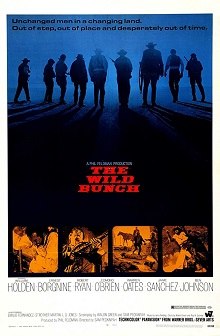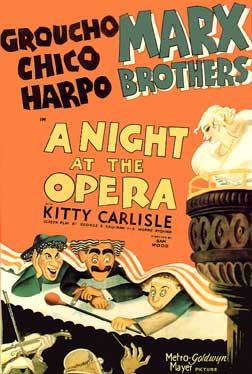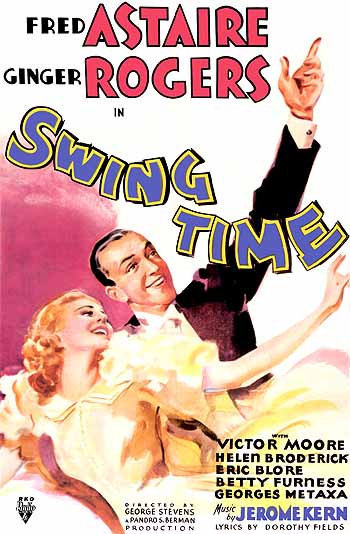Thursday, December 15, 2011
#75. In The Heat Of The Night
Year: 1967
Director: Norman Jewison
Reflections: An incredibly relevant film in 1967 and today, In The Heat Of The Night features Sidney Poitier and Rod Steiger in the heart of Sparta, Mississippi as they attempt to solve a homicide in the midst of tense racial conflict. I was highly impressed with Poitier and Steiger as the accoladed story brings out the heat in their internal battle between pride and justice. Hitting screens at the close of the American Civil Rights Movement, Jewison's film delivers a powerful message of common values overreaching racial barriers, as well as the futility of intolerance. Well done, boys.
Thursday, December 8, 2011
#77. All The President's Men
Year: 1976
Director: Alan J. Pakula
Reflections: They say "All The President's Men" is the film that launched a thousand J-School students, and deservingly so. Robert Redford and Dustin Hoffman quickly form a dynamic journalistic duo as they try to uncover the true story of the Watergate scandal. The writing in this film is just wonderful, winning the Academy Award for Best Writing, and the unique cinematography and art direction make "All The President's Men" a real treat for any cinema enthusiast.
#78. Modern Times
Director: Charlie Chaplin
Reflections: Hello Charlie Chaplin! Before this flick, I never realized what an advocate Chaplin was for social change. Modern Times paints a haunting picture of American industrial capitalistic culture by telling the story of a factory worker (Charlie Chaplin) as he works himself crazy in the great human machine. After facing jail time and giving audiences from good laughs, the factory worker (known as The Tramp) meets a lovely young homeless woman. Together they embrace the idea of a simple life and walk off into the sunset. Absolutely awesome.
#79. The Wild Bunch
Year: 1969
Director: Sam Peckinpah
Reflections: The Wild Bunch tells the tale of a band of wild western outlaws swept over by change. As technology and the times advance, Williams Holden and his gang of vandals want to pull one final job before they fade into the sunset. What begins as a well planned heist turns into a series of gory shootouts as the outlaws come to realize the old ways are dead. Audiences grow to pity with the bad guys in this tale as they represent the human condition through their resilience and inability to cope with change.
#80. The Apartment
Year: 1960
Director: Billy Wilder
Reflections: Have I mentioned 1960 was a GREAT year for American film? The Apartment is a romantic dramedy starring Jack Lemon and Shirley MacLaine in a story that is nothing short of fanciful. C.C. Baxter (Lemon) is an up-and-coming businessman, mostly because he lends his apartment out to office superiors who want a discrete spot to host their love affairs. Baxter begins as a spineless little man, but through a series of mishaps undergoes a transformation into a strong character who stands up for himself. Audiences loved this black and white flick then, and I still do now. After all, there's a reason Spartacus didn't win Best Picture that year.
#81. Spartacus
Year: 1960
Director: Stanley Kubrick
Reflections: Let's start this one off by saying 1960 was a good year for American film. Kubrick's Spartacus took home four Oscars, but easily could have wracked up more in just about any other year. Kirk Douglas, a true man's man, gives an outstanding performance as Spartacus, a headstrong slave who ascends to lead a revolt on the Roman Empire. Quite a different approach to the time from epic "Ben-Hur", Spartacus is an inspiring story about a man's true character in the face of dire odds. Hats off to you, Kubrick. We'll be seeing you again soon.
#82. Sunrise
Year: 1927
Director: F.W. Murnau
Reflections: In comes Sunrise at #82 as the first silent film on the countdown. Murnau's work was definitely interesting, and it was deemed quite creative at the time, claiming the Academy Award for Best Picture, Unique and Artistic Production. The story follows a farmer who becomes enchanted by a big-city woman and is driven to the point of attempting to murder his wife. Perhaps the film's message is best summed up in an opening title card:
"For wherever the sun rises and sets, in the city's turmoil or under the open sky on the farm, life is much the same,; sometimes bitter, sometimes sweet."
#83.Titanic
Year: 1997
Director: James Cameron
Reflections: It was only a matter of time til James Cameron made his presence known on the countdown. In the late 90's, Titanic was pure epic. Three hours of star-crossed lovers fighting the odds on the world's most impressive vessel? What's not to like? The Academy seemed to think so as well, as Titanic took home a whopping 11 Oscars that year. I particularly thought the score was impressive, with Celine Dion putting the icing on the cake.
#84. Easy Rider
Year: 1969
Director: Dennis Hopper
Reflections: Written, acted, and directed by Dennis Hopper and Henry Fonda, Easy Rider is essentially a social commentary on 1960's counter culture. Truthfully, I didn't fall in love with this one right away. Although, I was certainly alert during the 10 minute first-person New Orleans acid trip sequence. I fully believe that's what an acid trip in The Big Easy would look like. Drugs aside, the story does have a powerful message that shines light on intolerance to anything that challenges societal norms.
#85. A Night at the Opera
Year: 1935
Director: Sam Wood
Reflections: A Night at the Opera showcases The Marx Brothers in a picture loaded with witty 1930's Marx Comedy. Groucho, Chico, and Harpo take the screen as a group of renegades dead-set on uniting two star-crossed opera lovers, specifically by helping a young tenor find his way onto the main stage. Shenanigans ensue as the band defies authority and takes great pleasure in sticking it to the man. It's a bit drawn out at times, but if you've never seen Groucho Marx in action, this a great starting point.
#86. Platoon
Year: 1986
Director: Oliver Stone
Reflections: The tagline of this film is "The first casualty of war is innocence." Duly noted. With brilliant performances from Sheen and Dafoe, Platoon takes viewers into the heart of Vietnam. Sheen plays a young solider who enlists with high ideals, but during his first deployment, his innocence is shattered as he comes face to face with the cold truths of war. His journey translates into what is arguably the most powerful war movie in American history.
#87. 12 Angry Men
Year: 1957
Director: Sidney Lumet
Reflections: 12 Angry Men is a fantastic social commentary in the heart of late 1950's New York as a room full of jurors deliberate the fate of a hispanic boy being charged with the murder of his father. Henry Fonda delivers a moving performance as the strong spoken idealist amidst a room full of prejudice and distracted minds. I enjoyed the focus Sidney Lumet's film places on the importance of life, along with the current racial inequality in the judicial system.
#88. Bringing Up Baby
Year: 1938
Director: Howard Hawks
Reflections: What's better than a film starring two of the nation's funniest, and most charismatic, onscreen personalities? A film starring two of the nation's funniest, and most charismatic, onscreen personalities AND a leopard named Baby. Cary Grant is the man, Katherine Hepburn is laugh-out-loud funny, and Bringing Up Baby is worth its weight in pure screwball comedy gold. This flick was one of my favorites in elementary school when I watched it with my mom, and it remains near and dear to my heart today.
#89. The Sixth Sense
Year: 1999
Director: M. Night Shyamalan
Reflections: Take a quick trip back to 1999 and remember the first you saw this film and M. Night railed you with the twist? "Really!? Bruce Willis was dead the whole time!? #WorldRocked" - @mrjakemorgan if Twitter had existed pre-Y2K.
You got us, Shymalan, not every gift is a blessing!
#90. Swing Time
Year: 1936
Director: George Stevens
Reflections: Swing Time, which features Fred Astaire at his best, is a masterpiece filled with lively music and phenomenal dance numbers. However, as I watched this film, only one thought seemed important in my mind: I need to learn to dance, build a time machine, travel to 1930, and marry Ginger Rogers. She was a doll if there's every been one, and Rogers provided the perfect balance for the suave Astaire.
#91. Sophie's Choice
Year: 1982
Director: Alan J. Pakula
Reflections: Sophie's Choice made me realize why Meryl Streep is considered one of the greatest actresses of all time. In her Academy Award winning performance as Sophie, a post-WW2 Polish immigrant with a troubled past, Streep will genuinely touch your heart. When a young southern writer named Stingo (Peter MacNicol) moves to Brooklyn and befriends Sophie, along with her volatile lover, Nathan (Kevin Klein), he becomes overwhelmed by how deep the rabbit hole goes. Powerful story. Chilling conclusion.
Thank You For Bearing With Me
For those of you who have been following my pursuit of viewing America's most influential films, thank you and fear not! I have indeed continued my quest to watch the AFI Top 100, and with much success, but I have failed to post my thoughts via blog. For that, I apologize.
Honestly, I had trouble finding the time and motivation to continue writing when life got busy. I realize this can easily happen to the best of us, but I'm going to attempt to not let that be an excuse. From this moment on, I will resume posting my reflections. This time, however, I'm going to take the socially savvy approach and attempt to summarize my thoughts into 500 characters of less. This will make The Year of 100 Films (1) easier to read and (2) less time consuming to write. Thank you for bearing with me.
Now, where were we? Ah yes. Sophie's Choice.
Honestly, I had trouble finding the time and motivation to continue writing when life got busy. I realize this can easily happen to the best of us, but I'm going to attempt to not let that be an excuse. From this moment on, I will resume posting my reflections. This time, however, I'm going to take the socially savvy approach and attempt to summarize my thoughts into 500 characters of less. This will make The Year of 100 Films (1) easier to read and (2) less time consuming to write. Thank you for bearing with me.
Now, where were we? Ah yes. Sophie's Choice.
Subscribe to:
Posts (Atom)





.jpg)










